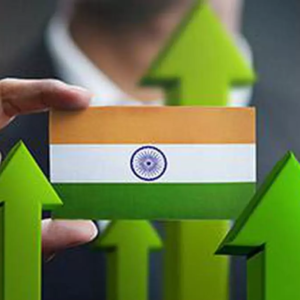Prime Minister Narendra Modi’s path breaking speech from the ramparts of the Red Fort on the 68th Independence Day, aims to take India to a new strata. After a long time, common man was allowed to attend the function and the Prime Minister breaking from the norms established by his predecessors spoke extempore and without security of a Bullet proof enclosure. Field Marshal Manekshaw had once remarked that fear is natural to men, but a good leader must never exhibit fear. By addressing his countrymen without the security of a bullet proof jacket or enclosure, the Prime Minister has exhibited fearlessness and true leadership qualities. In also what should rank as a first,rising above petty politics, he acknowledged the contribution of previous Prime Ministers and governments;in bringing India to current level of Development. He also categorically stated that he was addressing his countrymen not as Pradhan Mantri(Prime Minister) but as Pradhan Sevak(Prime Servant), thereby reemphasising his focus on ‘Maximum Governance, Minimum Government’.
In a statesman like speech, the Prime Minister unveiled his agenda for growth and development asking his countrymen to rise above caste and communal identities and to impose a ten year moratorium on such sectarian violence. Taking a leaf out of his speech to the Constituent Assembly of Nepal, the Prime Minister asked the ‘misguided’ youth to shun the path of terrorism and Naxalism and to replace guns with plough to usher in peace and prosperity. Continuing his emphasis on farming he reiterated La lBahadur Shashtri’s slogan of ‘Jai Jawan Jai Kisan’. At the same time realising the fact that over dependence on agriculture for employment had contributed to thefragmentation of land holdings and has consequently, reduced agricultural productivity, he emphasised on the need to promote manufacturing. He exhorted his countrymen as well as international industries to make India a global manufacturing hub for quality products without impacting the environment adversely.In a significant move, he emphasised on the need for skill development and manufacturing of electronic goods, which have become a major component of India’s import.He urged the industrialists to take a pledge to manufacture at least one item that was being imported, so that India not only stops importing it, butalso starts exporting it.
In one of the most revolutionary scheme with far reaching consequences, the Prime Minister announced Jan Dhan Yojna, which will enable each Indian including the poorest of the poor, to have a bank account with a debit card, overdraft facility and an insurance ofRupees one lakh. This will in times to come, enable the government to transfer subsidies directly to the needy, thereby eliminating unnecessary government expenditure in giving subsidies to all including those, who do not deserve it. In addition, it will also provide the poor citizens of India cheap credit as well as much needed social security.
On social front, the Prime Minister, asked the society to shun its preference of male child and exhorted it to improve the sex ratio and the treatment of women. As in the past and following up from the President’s speech on the eve of Independence Day, he emphasised on the pressing need for sanitation and cleanliness. He stated that a clean India would be the most fitting tribute toGandhijion his 150th birth anniversary in 2019. The emphasis on cleanliness is not only likely to reduce diseases and the health problems of the population;but also the cleaner environment will give a fillip to the tourism, which has enormous capacity to generate employment across social, skill and economic spectrum. He lamented the absence of toilet facilities for women andurged building of toilets, so that women could feel secure.Heurged the corporate houses to set up separate toilets for boys and girls in schools, as part of their ‘Corporate Social Responsibility’. He unveiled Saansad Adarsh Gram Yojna, whereby each Member of Parliament including members of Rajya Sabha and those elected from urban constituencies could identify at least five villages by 2019, to be built as model villages. He also requested the state governments to extend similar schemes for the members of legislative assemblies and councils.
In the field of governance, the Prime Minister lamented the fact that his insistence on punctuality in the government offices, which should have been the norm, was making the headlines. He regretted the fact that various departments within the government were functioning as independent entities, often bickering with one another, to the extent that the disputes were being resolved through judicial interventions. He stated that he wanted the government to function as a unified entity rather than as an assemblage of disparate entities. Emphasising on E-Governance, he said that India had surprised the world with its IT skills and there was a need to move towards a ‘Digital India’. He stated that the government was committed to good governance through E-Governance, which enables easy governance and effective governance.Planning Commission, which has outlived its utility and has been a vestige of controlled economy, was often perceived as a huge impediment by the state for their developmental plans and accordingly the Prime Minister announced its scrapping and replacement by a Think Tank to advise the central and state governments.
The Prime Minister’s speech was significant in the way that unlike in the past it did not talk about the external powers and on the contrary, exhibiting his vision he talked about taking all the SAARC countries on the path of growth and prosperity. There is no doubt that many of South Asia’s problems stem from artificial borders often created by colonial powers and consequent disruption of inter dependent economies. Having invited all the SAARC leaders for his swearing in ceremony and having started his bilateral foreign visits with SAARC countries, the Prime Minister has possibly hinted towards a vision of taking South Asia towards South Asian Economic Union and possibly South Asian Union.
This article is written by Capt. Alok Bansal. He is the Director of Centre for Security and Strategy, India Foundation. The views expressed are his own.


